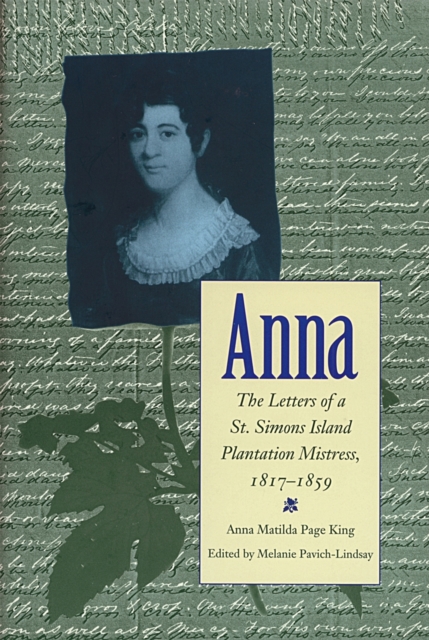
Anna : The Letters of a St. Simons Island Plantation Mistress, 1817-1859 PDF
Edited by Melanie Pavich
Part of the Southern Voices from the Past: Women's Letters, Diaries, and Writings Series series
Description
As the wife of a frequently absent slaveholder and public figure, Anna Matilda Page King (1798-1859) was the de facto head of their Sea Island plantation.
This volume collects more than 150 letters to her husband, children, parents, and others.
Conveying the substance of everyday life as they chronicle King's ongoing struggles to put food on the table, nurse her "family black and white," and keep faith with a disappointing husband, the letters offer an absorbing firsthand account of antebellum coastal Georgia life. Anna Matilda Page was reared with the expectation that she would marry a planter, have children, and tend to her family's domestic affairs.
Untypically, she was also schooled by her father in all aspects of plantation management, from seed cultivation to building construction.
That grounding would serve her well. By 1842 her husband's properties were seized, owing to debts amassed from crop failures, economic downturns, and extensive investments in land, enslaved workers, and the development of the nearby port town of Brunswick.
Anna and her family were sustained, however, by Retreat, the St.
Simons Island property left to her in trust by her father.
With the labor of fifty bondpeople and "their increase" she was to strive, with little aid from her husband, to keep the plantation solvent. A valuable record of King's many roles, from accountant to mother, from doctor to horticulturist, the letters also reveal much about her relationship with, and attitudes toward, her enslaved workers.
Historians have yet to fully understand the lives of plantation mistresses left on their own by husbands pursuing political and other professional careers.
Anna Matilda Page King's letters give us insight into one such woman who reluctantly entered, but nonetheless excelled in, the male domains of business and agriculture.
Information
-
Download - Immediately Available
- Format:PDF
- Pages:495 pages, Maps
- Publisher:University of Georgia Press
- Publication Date:30/04/2010
- Category:
- ISBN:9780820327174
Information
-
Download - Immediately Available
- Format:PDF
- Pages:495 pages, Maps
- Publisher:University of Georgia Press
- Publication Date:30/04/2010
- Category:
- ISBN:9780820327174






